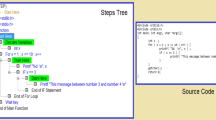
Overview
- Offers a holistic journey to Visual Studio Extensibility spanning from foundation to advanced techniques
- Provides step-by-step hands-on tutorials and exercises on how to create functional extensions
- Delves into leveraging AI in Visual Studio extensions
Access this book
Tax calculation will be finalised at checkout
Other ways to access
About this book
Master Visual Studio extensibility for an enhanced Visual Studio IDE experience. This book is a comprehensive guide that covers every facet of developing, debugging, and publishing extensions that amplify your productivity, tooling, and analysis within the Visual Studio IDE.
This new edition is updated for Visual Studio 2022, which is the latest and greatest version of Visual Studio. Since the last edition, Artificial Intelligence (AI) has taken the world by the storm. This revised edition demonstrates how AI can take your extensions to unparalleled heights using ChatGPT.
The book begins with an introduction to the essential concepts of Visual Studio, including data structures and design patterns before diving into the fundamentals of the Visual Studio extensibility model. Here you will learn the anatomy of a VSIX and how extensions are discovered and loaded in Visual Studio. Next, you will explore the extensibility model and see how various extensions, such asmenus, commands, and tool windows can be plugged into Visual Studio. Moving forward, you’ll cover developing VS extensions and how they can be made configurable by customizing the UI and options page, and you’ll learn to develop a VS extension that leverages ChatGPT. Next, you will see how to extend the most often used component of Visual Studio, the code editor, before creating your own sample code snippets and templates. This is followed by a demonstration of how to deploy extensions using continuous integration (CI). Finally, you will learn tips and tricks for Visual Studio and its extensibility, along with a few highly valuable extensions.
After reading Visual Studio Extensibility Development, you will be able to develop, debug, customize, and deploy extensions in Visual Studio IDE.
What You Will Learn
- Master the art of personalizing extensions through the creation of dedicated tools option pages
- Extend commands, editor, and tool window of Visual Studio
- Seamlessly integrate artificial intelligence in Visual Studio extensions
- Create project templates, item templates, and code snippets to streamline your development process
- Enhance IntelliSense for your custom project needs
- Publish your extension in the Visual Studio marketplace
Who This Book Is For
Developers, Programmers, Engineers, Architects, Instructors, Innovators, Students and Technology enthusiasts leveraging Visual Studio IDE.Similar content being viewed by others
Keywords
Table of contents (9 chapters)
-
Front Matter
-
Back Matter
Authors and Affiliations
About the author
Bibliographic Information
Book Title: Visual Studio Extensibility Development
Book Subtitle: Extending Visual Studio IDE for Productivity, Quality, Tooling, Analysis, and Artificial Intelligence
Authors: Rishabh Verma
DOI: https://doi.org/10.1007/978-1-4842-9875-6
Publisher: Apress Berkeley, CA
eBook Packages: Professional and Applied Computing, Apress Access Books, Professional and Applied Computing (R0)
Copyright Information: Rishabh Verma 2024
Softcover ISBN: 978-1-4842-9874-9Published: 22 December 2023
eBook ISBN: 978-1-4842-9875-6Published: 21 December 2023
Edition Number: 2
Number of Pages: XIX, 446
Number of Illustrations: 284 b/w illustrations



